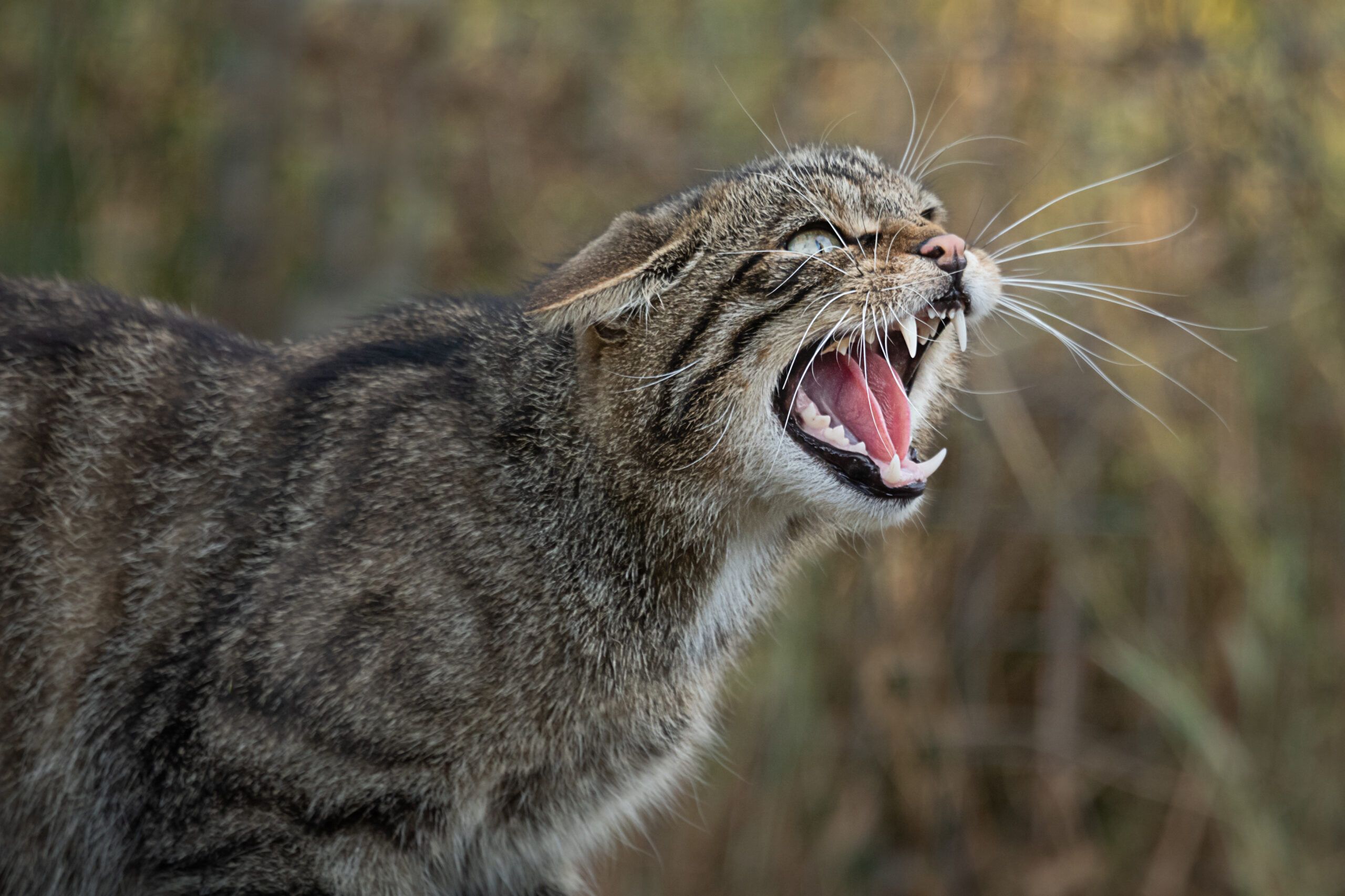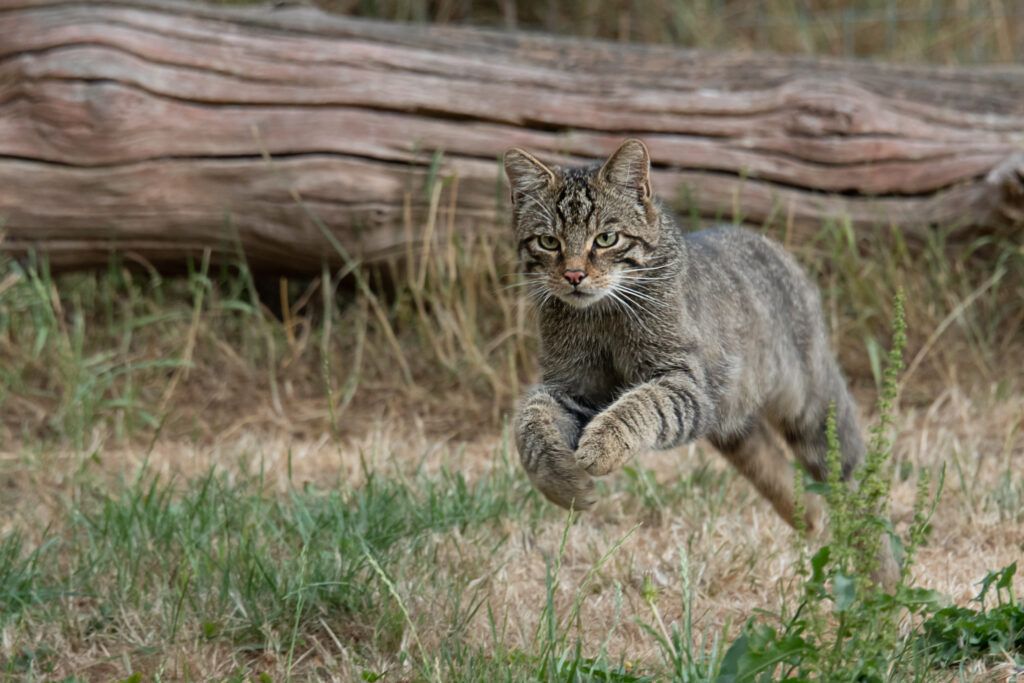Wildcats in Wales

European wildcats are now only found in Scotland, however they once occurred throughout mainland Britain before intensive historical predator control drove the species to extinction in England and Wales.
A long history
Wildcats (Felis silvestris silvestris), cath wyllt or cath goed have a long history in Wales where they were once relatively widespread. Bounties were paid for wildcat heads during the 18th century when these predators were considered vermin. More payments were made in Wales than anywhere else in the UK.
Their numbers dwindled and they’re believed to have been lost from most counties early in the 19th century, though sightings were still reported in south-west Wales as late as 1848. The final sighting of a wildcat in Wales is usually cited as 1862, although there are several intriguing later records including the Talybont cat, shot near Aberystwyth in November 1893. It’s description – including a broad flat head, muscular frame and bushy ringed tail – sounds just like a true wildcat. There’s an even later record dating from 1937, when the skeleton of an animal shot in Pembrokeshire, was presented to the National Museum of Wales.

Would Wales welcome back wildcats?
Recent research has shown that there are parts of Wales that could support wildcats once again. However returning this native predator to its place in the ecosystem is less about science and more about people’s willingness to live alongside this forgotten species. So Vincent Wildlife Trust, with support from PTES, is working with locals to find out people’s views about a possible wildcat release. Over the coming year we’ll listen to what communities and stakeholders have to say and involve them in decision making and recommendations for our next steps.
We want to give wildcats a brighter future; with your help we can make a difference.
Header image © Alan Tunnicliffe | Shutterstock.com
